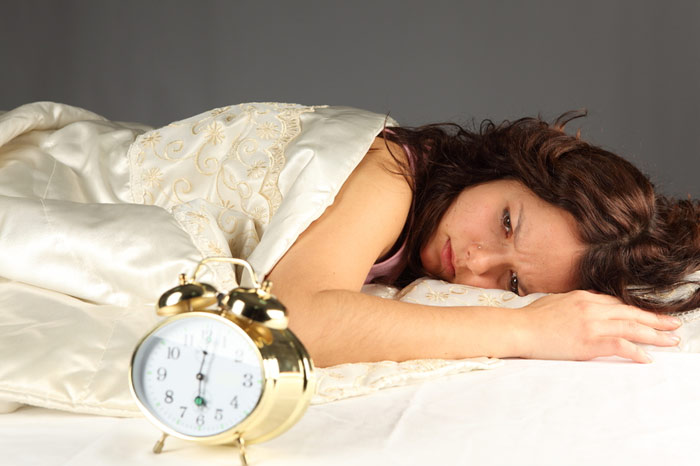
Coach and scientist James Clear summed up everything that the science knows about the nature of sleep and gave recommendations on how to sleep better and be more energetic.
On February 13, 1972, Michel Siffre settled in a cave in southwestern Texas to spend the next six months there without daylight. Siffre was not a madman. Instead, he was a French scientist and pioneer in the field of chronobiology – the science that studies biological rhythms.
The most famous rhythm is the circadian one, which regulates the sleep and wake cycles. Siffre went to the cave to find out how this mechanism worked. Siffre lived in a tent. He had a wooden pallet instead of a bed. There was also a table, a chair and a telephone to communicate with the research group, which remained outside.
His underground had only one light bulb with the same soft light, a large supply of frozen food products and a couple of tons of water. Most importantly: there were no clocks and calendars.
The scientist’s task was to monitor the body, which did not know whether it was daytime or the night, so it could not know whether to sleep or not. Siffre lived six months alone in that cave. During that period of time he was trying to figure out how his biological clock was working.

Here is what he wrote in his diary:
I finally have a perfect sleep! It is my body that chooses when to sleep and when to eat. It is very important. We know that the day normally includes 24 hours. But the internal clock of our body is set for a slightly longer period of 24 hours and 30 minutes.
Siffre conducted new experiments on himself. Finally, he found the ideal formula in the 48-hour cycle: 36 hours of continuous wakefulness, and then 12 hours of sleep. Siffre’s and his followers’ works forced the scientists from major universities – Harvard and Pennsylvania – to get interested in the nature of sleep.
How long should we sleep?

Consider the experiment conducted by researchers from the University of Pennsylvania and the University of Washington. They invited 48 healthy men and women, who slept an average of 7-8 hours a day, and divided them into four groups:
- The first group included the volunteers, who were deprived of sleep for three days in a row.
- The second group united those who slept four hours a day.
- The third group included the people who slept 6 hours per night.
- The fourth group had to sleep for 8 hours
The experiment had lasted for two weeks, and then the participants passed the tests checking their mental and physical performance. That’s what happened.
- Those who slept 8 hours a day remained active and passed the tests as good as before the experiment.
- Those who slept 4-6 hours a day showed a steady decline in cognitive abilities, and the problem aggravated with every passing day.
- It was interesting to observe no significant difference between the members of the group, sleeping 4 and 6 hours.
- The researchers also found that the need for sleep can accumulate.
A week later, one in four members of the groups not having enough sleep began to spontaneously “drop off” at random locations. After two weeks of the experiment, the members of the group that slept for only 6 hours, showed the same deficit of productivity, as those who had not slept for two days in a row.
If you sleep six hours a day for two weeks in a row, your mental and physical abilities are reduced to the same level as if you have not slept for 2 days in a row.
The participants of the experiment did not notice the reduction in performance. When they were asked to assess their effectiveness, they all overrated themselves. In other words, we cannot adequately assess ourselves and our productivity.
The cost of not getting enough sleep

The irony is that many of us consciously deprive ourselves of normal sleep in order to increase our productivity and cope with more tasks. But in fact, we only ruin our plans.
Studies show that in the United States the workers’ chronic lack of sleep leads to a situation when their employers lose a total of $100 billion a year.
Gregory Belenky, director of the research center for the study of productivity at the University of Washington, explains that we are depriving ourselves of sleep at a great sacrifice to productivity. We are wasting our time unless we are doing a job that does not imply any mental skills.
This brings us to an important question: how can you understand whether you have enough sleep?
Experts agree that 95% of all adults should sleep from 7 to 9 hours every night in order to live a normal life. If they sleep less, they will lose their mental and physical performance. Children and the elderly need even more sleep. Meanwhile, people are sleeping less and less.
The Harvard Medical School claims that the Americans’ average sleep duration has decreased from 9:00 in 1910 to 7:00 today. Dr. Lawrence Epstein of this institution claims that 20% of Americans sleep less than six hours a day.
Age-related changes
Harvard Medical School argues that the older you are, the more difficult it is to fall asleep and the worse your sleep performs its functions. If the elderly people are having problems with sleep, you can say for sure that their process of aging is now accelerating rapidly. And you have to ask a somnologist for help.
How to recover if you do not have enough sleep?

Harvard Medical School experts suggest sleeping during the day. At least for 20-30 minutes. That’s enough to help the brain “focus” on some task.
When should you go to bed, and when do you need to wake up?
Here are some things common to all:
- At 6 am, the cortisol levels increase, which helps to awaken your brain and body.
- At 7 am, the body stops producing the sleep hormone melatonin.
- At 9 am, your hormones are at their peak performance.
- 10 am is the peak of your mental activity.
- 2.30 in the afternoon is the peak of your systems, responsible for motor skills and coordination.
- 3.30 pm is when you have the best reaction.
- 5.00 pm is the time when your cardiovascular and muscular systems work the best.
- 7 pm is the period of high blood pressure and increased body temperature.
- 9 pm is the time to start melatonin production. The body prepares itself for sleep.
- 10 pm is when you often need to the lavatory. The body continues to get ready for bed.
- 2 am is the deepest sleep time.
- 4 o’clock in the morning is when you have the lowest body temperature. Being awake at this time is especially harmful.
Obviously, all these periods may slightly differ among individuals. However, they really demonstrate the common tendency.






